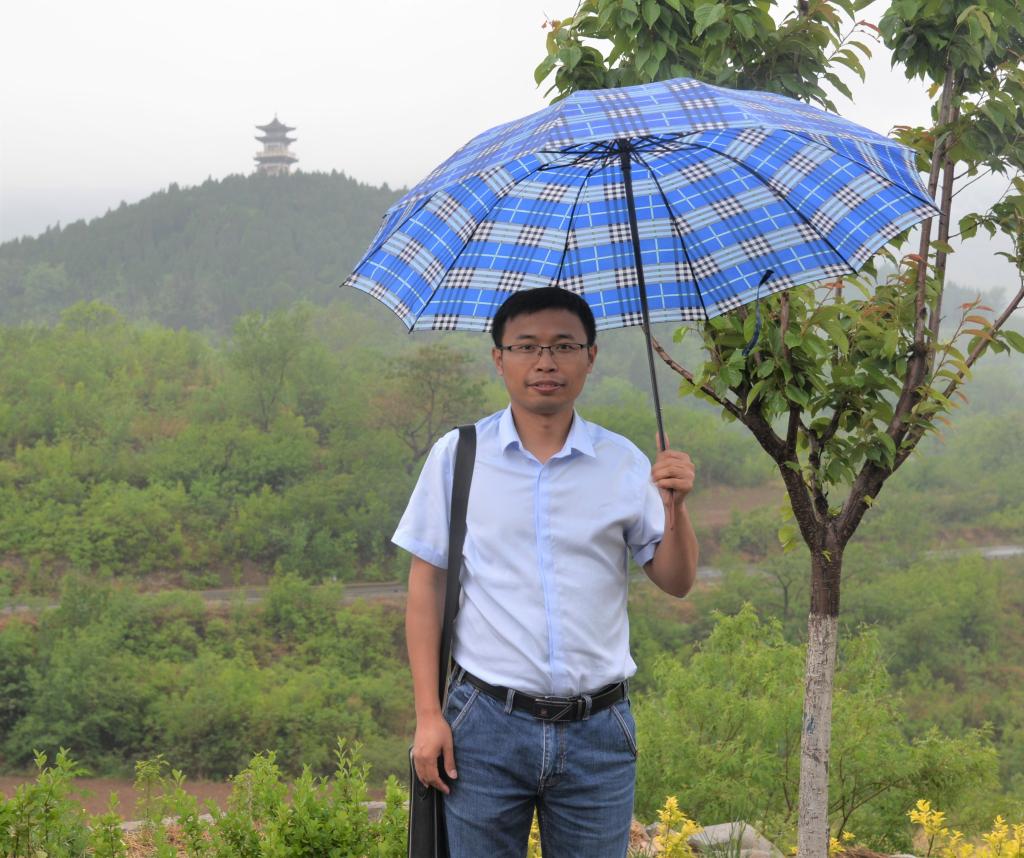
HAN Chaojian (韩朝建)
Associate Professor
Educational Background:
09/2000-06/2004 English Department, School of Foreign Languages, Sun Yat-sen University (Bachelor of English Literature)
09/2004-06/2007 School of History, Beijing Normal University (Master of History)
08/2007-09/2011 History Department, The Chinese University of Hong Kong (PhD of History)
Work Experience:
11/2011-08/2017 Lecturer, School of History and Culture, Shandong University
06/2016-07/2016 Visiting fellow, School of Humanities and Social Science, the Hong Kong University of Science and Technology
09/2017-12/2017 Research Associate, History Department, the Chinese University of Hong Kong
09/2017-present Associate Professor, School of History and Culture, Shandong University
Area of Research:
Social history of North China; Rural society of Ming and Qing Periods
Courses:
Undergraduate: Methodology of Social Survey; Chinese Intellectual History; Chinese History in the Field
Graduate: Aspects of History from Song to Qing Dynasties; Study of Ancient Chinese History; Chinese Social History (Overseas Students)
Publications:
Books
1, Lin Juemin, Xuexi Publishing House, 2019.
2, Nanxiaye Village, Shandong University Publishing House, 2017
3, Monasteries and the Government: Administrative Systems and Local Society in Mount Wutai During the Ming and Qing Dynasties, Remin Publishing House, 2016.
4, Qi Jiguang: The Renowned General Against Japanese Pirates, Nanjing Publishing House, 2016
5, (co-translated) Lynn Struve: Time, Temporality, And Imperial Transition: East Asia From Ming To Qing, SDX Joint Publishing Company,2009.
Articles
1, Village Opera Troupe and Social Mobilization: the Making of Qiongrenle in Gaojie, Fuping County, Hebei Province, 1944, in Folklore Studies, No.3, 2018.
2, The Vanishing of Jiawo: the Change of Land Transportation in Mount Wutai in Modern Era, in Journal of Xinzhou Normal Colleage, No.2, 2018.
3, The Realization of Village Unity in North China During the Ming and Qing Dynasties: The Case of Beishe Village, Dingxiang County, Shanxi Province, in Han Doyun et al ed. Shichuan Village and the Future of Rural Community, The Academy of Korean Studies, 2017.
4, Building Harmony: the Practice of the Gentry of Ruhai Village, Shanxi Province, in Han Doyun et al eds. Liangdong Village and the Future of Rural Community, The Academy of Korean Studies, 2017.
5, Administration in the Forbidden Mountain: the Case of Yanmenguan Pass in the Ming Dynasty, in Zhao Shiyu ed. Beyond the Great Wall: System, Ethnicity and Local Development From the Perspective of Social History, Peking University Press, 2016.
6, The Spreading of Confucianism in Hezhou Sub-Prefecture in the Case of Wang Hong, in The Proceedings of the Symposium on Wang Hong, Yunan Renmin Publishing House, 2015.
7, A Review of the Development of Chinese Folklore Culture in 2013, in The Yearbook of Chinese Folklore Development 2014, Shandong University Press, 2015.
8, Qingming Association and Lineage Structure: The Case of Sibeichai Village in Luancheng County, Hebei in Republican Period, Folklore Studies, No.5, 2015.
9, Elites and Power Structure in Republican Villages: An Aspect of North China Villages, Social Sciences of Shandong, No.12, 2014.
10. “The Home to Officials of Many Generations”, in John Lagerwey and David Faure eds. The Construction of Sacred Space in Chinese Villages and Towns, Social Sciences Academic Press, 2014.
11, Promoting Tax System in Mount Wutai in the Middle Ming: Based on Temple Inscriptions, in Zheng Zhenman ed. Collection of Essays on Local Historical Literature Vol. 2: Inscriptions on Stone Tablets, Social Sciences Academic Press, 2014.
12, The Great Locust Tree of Hongtong County: An Imagined Home Land, in China Historical Review, Vol2.(2014)
13,A Review of the Development of Chinese Folklore Culture in 2011, in The Yearbook of Chinese Folklore Development 2012, Peking University Press, 2013.
14. The Religious Space in the Transitional Period of Village Administration: The Case of Lengshuigou Village, Licheng County, Shandong Province in the Replican Era, in Cultural Heritage, No.6, 2013.
15, Monasteries in the Forbidden Mountain: the Development of Mount Wutai, 1453-1566, Ming Studies (Taiwan), No.19 (2012).
16, The Ancestral Scroll and Lineage in North China: The Case of Dai County, Shanxi Province, Folklore Studies, No.5, 2012.
17. The “Loyal Village”: the Construction of Yang Surname in Lutijian, Daizhou Sub-prefecture During the Yuan and Ming Dynasties, in Journal of History and Anthropology, Vol.8, No.1 (2010)
18. Book Review: The Interweaving of Rituals: Funerals in Cultural Exchange between China and Europe, by Nicolas Standaert, in Journal of History and Anthropology, Vol.7, No.1 (2009)
Recent Projects:
1, Religion and Self-Rule in Rural Hebei and Shandong in Modern Era: Focusing on the Survey by South Manchuria Railway Company, Shandong Social Sciences Project, 2018.
2, A Study of Stone Tablets in Wutai Monasteries and Buddhist Reform in Modern Era, Group Project of Humanities and Social Sciences of Shandong University, 2018.
3, Chinese Social History, Excellent Education Project of Shandong University, 2017.
4, Remaking the Sacred Mountain: the Political-Religious Relation in Mount Wutai, General Post-doc Project of China, 2016.
Awards:
1, Supervisor of Excellent Undergraduate Thesis of Shandong University, 2019.
2, Supervisor of Graduate Theme Practice, 2018.
3, Excellent Publication of Social Sciences of Shandong Universities, Third Prize, 2017.
4, Excellent Publication of Social Sciences of Shandong Universities, Third Prize, 2013.
